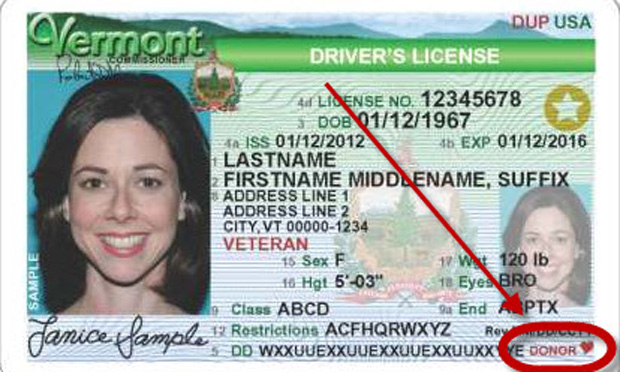Government leaders in multiple states have been debating ways to encourage more Americans to register as organ donors so that their kidneys, liver and other vital organs can be used to save the lives of others. At any one time, more than 121,000 people in the U.S. are awaiting organ donations – more than enough to fill two large football stadiums, according to the U.S. Department of Health and Human Services. But there is a large and widening gap between the need for organs and the donations being made.
In most cases, donors are being asked to allow their organs, eyes or tissue to be used after their death. But living donations also are being encouraged. In February 2016, the Wisconsin Senate passed a bill that would allow living donors of organs to take a leave of absence from work to recover. The same month, Nebraska Gov. Pete Ricketts signed a bill allowing drivers to keep their organ donor status until they ask for it to be changed – instead of requiring all drivers to update their status every time they renew their licenses. Also in February 2016, the New York Senate unanimously passed a four-year extension of a law designed to increase organ donations in that state.
Each state’s Department of Motor Vehicles (DMV) has taken the lead on registering individuals as donors. Generally, individuals are asked whether they want to register as organ donors when they apply for a state driver’s license or ID card and also upon renewal. Other agencies assist with registries. Many states, for example, have partnered with the non-profit Donate Life America (DLA) to urge individuals to participate. Some of the states with the largest percentages of adults who are registered donors are Iowa (80 percent), Colorado (78 percent) and Alaska (84 percent), according to a 2015 annual report from DLA. Registration remains relatively low, however, among some of the nation’s largest states – for example, 35 percent of adults in Texas are registered donors. The percentages in California and New York are 40 percent and 23 percent, respectively.
As governments and advocacy groups discuss policies related to organ donation, a March 2016 study published in Social Science & Medicine offers new insights. A group of researchers led by Jason T. Siegel, a social-health psychologist at Claremont Graduate University, examined how people’s experiences with the DMV may affect their likelihood of signing up as an organ donor. For the study, titled “Anger, Frustration, Boredom and the Department of Motor Vehicles: Can Negative Emotions Impede Organ Donor Registration?,” the authors performed three experiments to explore how people feel about the DMV and the types of emotions that people feel when they are most agreeable to registering for organ donation.
Among the key findings:
- People who were asked to recall a prior experience at the DMV reported feeling more negative emotions and fewer positive emotions compared to those who were asked to recall their emotions during the current day.
- There is an association between higher levels of negative emotions such as boredom and frustration and a lower intent to register as an organ donor. At the same time, “intentions to register as an organ donor were significantly associated with the positive emotions of gratitude, elevation, empathy, and happiness.”
- Individuals were less likely to say they intended to become an organ donor after being asked to think about a frustrating experience at the DMV.
The authors state that they hope their study raises awareness about the influence of a negative DMV experience on people’s willingness to register as organ donors. They suggest that future research focus on how promotional materials and other initiatives can work to overcome negative feelings. “It is crucial for future studies to examine means of overcoming the negative influence that a frustrating DMV visit can have on donor registration behavior,” the authors state.
Related research: A 2013 study published in the American Journal of Transplantation, “Social Media and Organ Donor Registration: The Facebook Effect,” considers how social media can be used to improve organ donation rates. A 2014 paper from the National Bureau of Economic Research, “Don’t Take ‘No’ For an Answer: An Experiment with Actual Organ Donor Registrations,” considers how willingness to register as an organ donor might be tied to how questions are asked on registration forms.
Keywords: organ donation, organ donor, DMV, Department of Motor Vehicles, driver license, voluntary participation


Expert Commentary